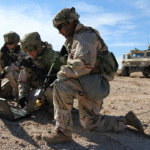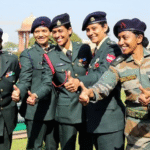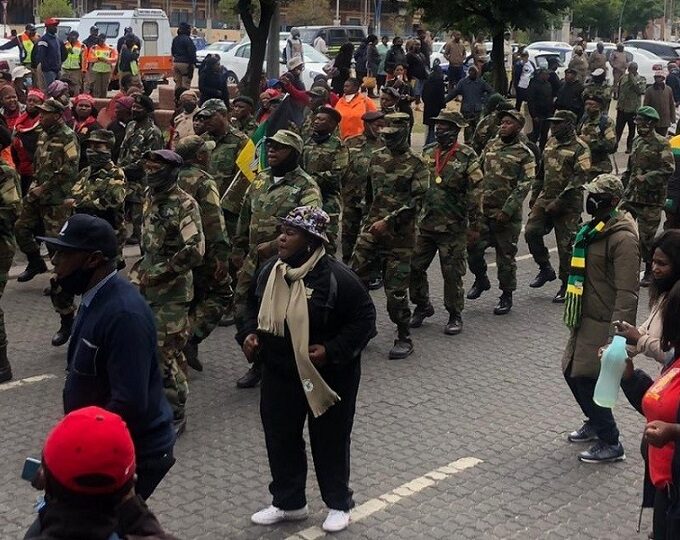Women Veterans in Africa: Breaking the Silence and Leading the Way
This article explores the unique experiences, challenges, and contributions of women veterans in Africa—highlighting those who have broken barriers and are now leading the charge for recognition, reform, and reintegration.

From frontline combat to strategic command, African women have served their nations with courage and competence. Yet, when the guns fall silent, many of these trailblazers disappear from national memory. Overlooked by veteran welfare systems and marginalised in post-service life, women veterans often face a double battle: one against the scars of war, and another against the silence of society.
This article explores the unique experiences, challenges, and contributions of women veterans in Africa—highlighting those who have broken barriers and are now leading the charge for recognition, reform, and reintegration.
Beyond the Uniform: Hidden Histories of Service
Women have played significant roles in African military history, both formally and informally:
- Liberation struggles in countries like Zimbabwe, Mozambique, South Africa, and Eritrea saw thousands of women take up arms.
- UN peacekeeping missions now feature African women in increasing numbers—from Kenya to Ghana to Rwanda.
- National armed forces in states like Nigeria, Senegal, Uganda, and Ethiopia have steadily expanded roles for women in logistics, intelligence, aviation, and combat support.
Yet, many of these contributions remain undocumented or underacknowledged. There are few official statistics on the number of women veterans across Africa, and even fewer gender-specific policies within national veteran frameworks.
Post-Service Challenges: Invisible Warriors
Women veterans face several overlapping forms of marginalisation:
- Policy Blindness: Most African veteran welfare systems are designed with male soldiers in mind. This results in a lack of maternity care, trauma counselling for gender-based violence, or support for single mothers.
- Social Stigma: Cultural norms often perceive female soldiers as “unwomanly,” discouraging them from speaking out about their service or seeking help post-retirement.
- Economic Disempowerment: Many women veterans are unemployed or underemployed, lacking access to military pensions, credit, or housing.
- Mental Health and Trauma: Female veterans who suffered sexual violence—either in service or during deployment—often face silence, denial, or shaming, with little access to psychological support.
In interviews conducted by the African Women in Security Initiative (AWSI) in 2023, 68% of women veterans surveyed said they had never received any form of post-service counselling or veteran-specific support.
Voices of Resilience and Reform
Despite the challenges, African women veterans are emerging as agents of change:
- Maj. (Rtd) Fatou Binta Diallo, one of the first female officers in the Guinean Army, now leads a veterans’ cooperative that trains ex-servicewomen in agriculture and entrepreneurship.
- Lt. Col. (Rtd) Doreen Agaba in Uganda runs the Women Veterans Initiative, which offers psychosocial support and legal advice to former female soldiers.
- Sgt. (Rtd) Nomsa Khumalo, a former MK combatant in South Africa, campaigns for recognition of female veterans from liberation movements, lobbying for inclusion in official veteran registries.
These women are not only fighting for recognition—they are re-defining what post-service leadership looks like.
Policy Gaps: Where Systems Fall Short
While countries like Rwanda, Ghana, and South Africa have taken steps to integrate gender into military service and peacekeeping, post-service policy remains fragmented.
Common gaps include:
- No sex-disaggregated veteran data
- Lack of female representation in veterans’ boards or welfare institutions
- Limited access to reproductive health services for women veterans
- No formal inclusion of women from auxiliary or non-combat roles (e.g., cooks, medics, communication officers)
In most cases, women are not even recognised as veterans unless they held combat roles—excluding many who served in vital support functions.
Global Lessons: Integrating Gender into Veteran Affairs
Some African nations are learning from international models. For example:
- South Africa’s Department of Military Veterans is drafting a gender-sensitive strategy to address historic imbalances.
- Rwanda is integrating female-focused PTSD and trauma services into its broader military health reforms.
- Ghana’s Armed Forces have begun tracking post-service outcomes for female personnel, a first step toward inclusive veteran policy.
Still, most of these efforts are recent, underfunded, and dependent on political will.
Roadmap for Inclusion: Recommendations
- Recognition of All Roles: Redefine veteran status to include all servicewomen, including those in non-combat and auxiliary roles.
- Dedicated Funding for Women Veterans: Establish female-focused veteran funds for healthcare, business, and housing.
- Sex-Disaggregated Data: Collect and maintain gender-based service records to inform equitable policy.
- Representation in Veteran Councils: Ensure women veterans have a seat at the table in decision-making bodies.
- Mental Health Services Tailored to Women: Address PTSD, sexual trauma, and reintegration challenges specific to female veterans.
- Public Awareness Campaigns: Combat stigma and amplify the contributions of women in uniform through national media and education.
Conclusion: From Silence to Strength
Women veterans in Africa are not victims—they are vanguards. Their service spans the frontlines of war and the corridors of peace. As leaders, mothers, entrepreneurs, and activists, they continue to serve long after they hang up their uniforms.
But honour must be institutional, not anecdotal. Africa cannot afford to leave behind the very women who once stood on its frontlines. By investing in inclusive veteran policies, the continent affirms not just gender equality—but its own commitment to justice and national memory.
Women Veterans Snapshot (2023–2024):
- Estimated number of African women veterans: 200,000+
- % with formal recognition or benefits: <30%
- Countries with gender-sensitive veteran policies: South Africa, Rwanda, Ghana (in progress)
- Number of active women-led veteran organisations: 20+
- Rate of women veterans reporting unmet mental health needs: 72%
Recent Posts
Categories
- Air & Aerospace16
- Border Security15
- Civil Security4
- Civil Wars4
- Crisis5
- Cyber Security8
- Defense18
- Diplomacy19
- Entrepreneurship1
- Events5
- Global Security Watch6
- Industry8
- Land & Army8
- Leadership & Training5
- Military Aviation5
- Military History27
- Military Speeches1
- More1
- Naval & Maritime9
- Resources2
- Security12
- Special Forces1
- Systems And Technology9
- Tech6
- Uncategorized3
- UNSC1
- Veterans6
- Women in Defence9
Related Articles
VETERANS – PENSION REFORM AND THE WELFARE OF AFRICAN MILITARY VETERANS
Across Africa, military veterans embody the sacrifices made for national liberation and...
ByKing Richard Igimoh, Group Editor ALOOctober 29, 2025Honouring Legacy: Military Museums and Memorials Across Africa
Africa’s military history is rich, complex, and often untold. From pre-colonial warrior...
Byadmag_adminJune 26, 2025From Combat to Civil Service: Veterans Transitioning into National Leadership
Across Africa, a quiet but significant transformation is underway: former soldiers are...
Byadmag_adminJune 26, 2025Forgotten Heroes: The Untold Stories of African Peacekeeping Veterans
Africa has long been a crucial contributor to global peacekeeping, supplying tens...
Byadmag_adminJune 26, 2025












